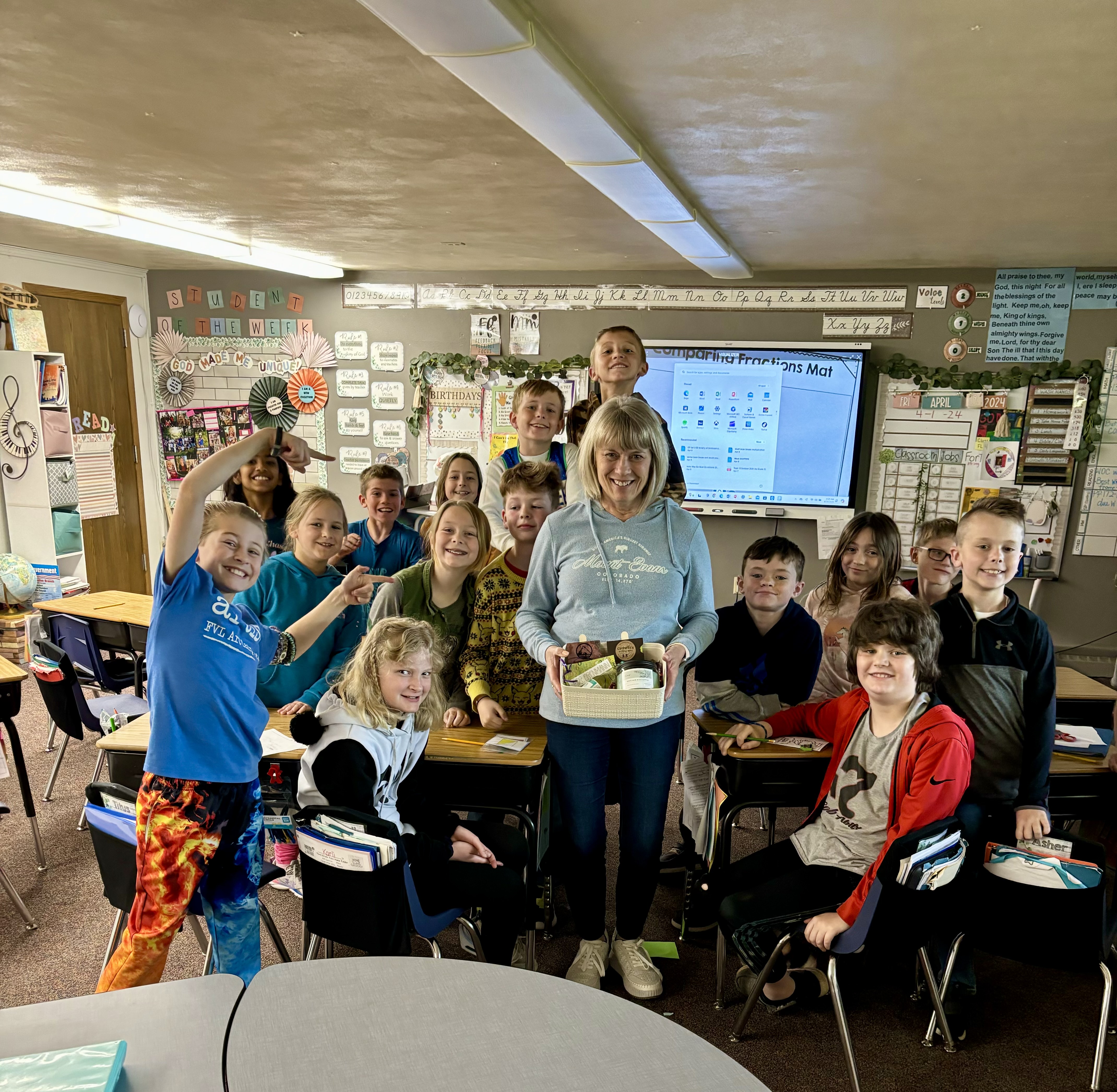
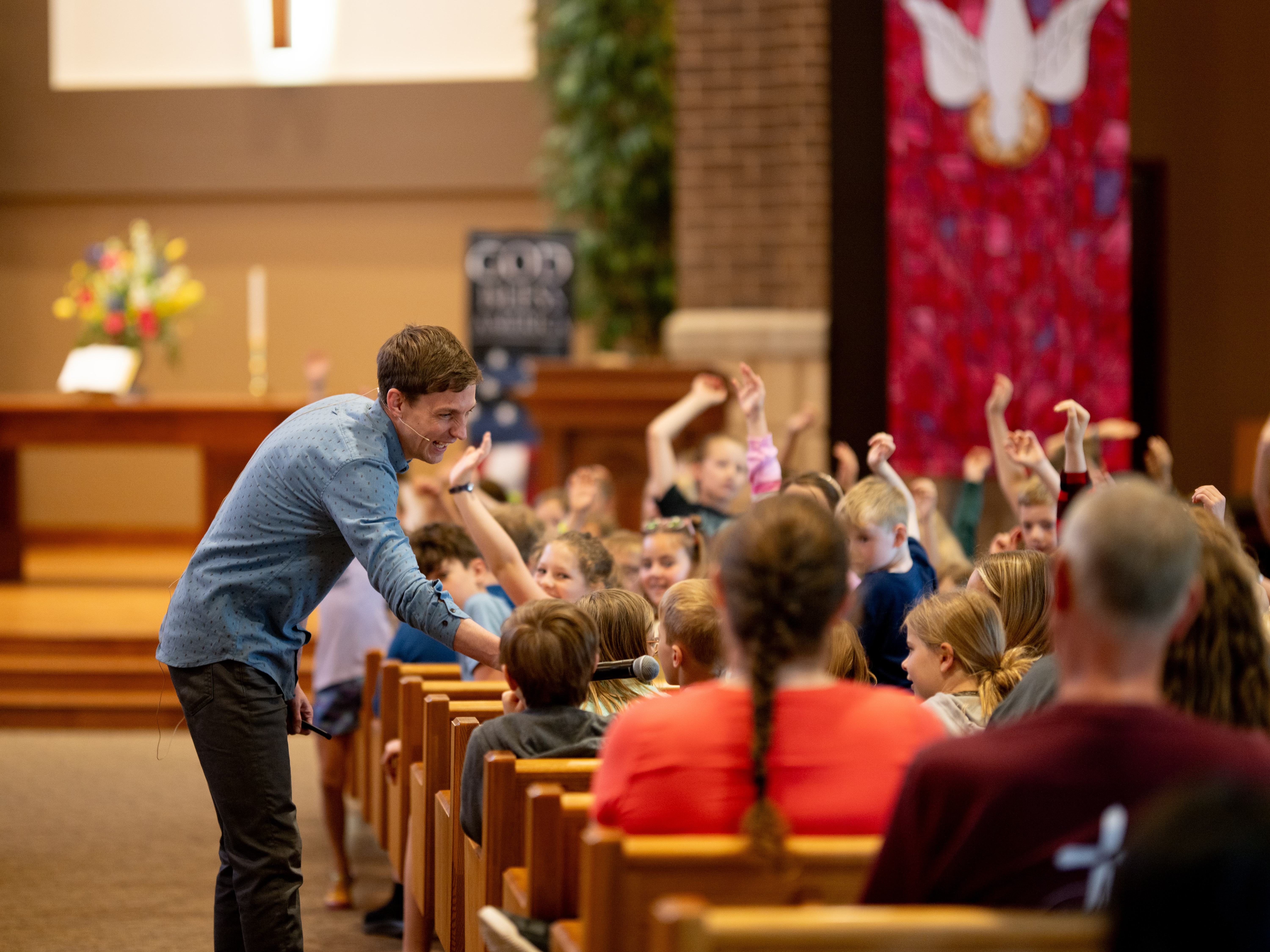
Every Child. The Whole Child. As His Child.
At St. Peter Lutheran School, our philosophy is Every Child. The Whole Child. As His Child. meaning our educational approach and curriculum takes into consideration the uniqueness of each student and the importance of not only academic growth, but emotional, social, physical, and spiritual growth as well. Finally, we are all God’s children, so we want our students to be immersed in God’s love and grace every day!
For more on our Academic Structure and the differences between grades K-4 and grades 5-8 education, please click below!
Our Curriculum
Questions? Give us a call today.
We are happy to help you discover more about what we do for our students!
Religion
At the heart of our curriculum is an intentional religious education program that nurtures students’ faith and spiritual development. Through daily devotions, Bible study, and catechism, students gain a strong foundation in Lutheran doctrine, understanding God’s Word, and applying it to their lives. Incorporating the 922 Ministries Roots and emphasizing service to their Savior, this curricular approach equips them with a Christian worldview, moral discernment, and the confidence to live as witnesses of Christ in a secular world.
Mathematics
Our math program emphasizes problem-solving, mathematical reasoning, and computational skills. These skills are taught in a structured way, preparing students for academic success in high school and beyond. Beyond academics, the study of math encourages critical thinking and perseverance, qualities essential for careers in STEM fields and daily life.
Science
In science, students explore the wonders of God’s creation through inquiry, experimentation, and critical thinking. Our curriculum integrates a respect for God’s design with rigorous scientific principles, ensuring students understand the interplay between faith and science. By fostering curiosity and analytical skills through a hands-on approach, we lay the foundation for future studies in fields like medicine, engineering, and environmental stewardship.
Language Arts
The language arts curriculum develops reading, writing, speaking, and listening skills essential for effective communication. Through exposure to classic and contemporary literature, students cultivate an appreciation for storytelling and human expression while engaging with texts from a Christian perspective. These skills prepare them for success in academics, careers, and their role as articulate, informed citizens of God’s kingdom.
Social Studies
In social studies, students learn about history, geography, government, and culture, developing a broad understanding of the world and their place in it. Lessons are infused with a Christian perspective, highlighting God’s hand in history and the importance of service to others. This prepares students to be thoughtful, informed participants in society who act as Christ-like servants in their communities.
Fine Arts
Through music, visual arts, and performance, students express creativity and glorify God with their talents. Our fine arts curricular approach cultivates an appreciation for beauty, discipline in skill development, and confidence in sharing gifts with others. These experiences foster personal growth and open pathways to creative futures.
Physical Education
Physical education promotes the stewardship of the body as God’s temple, encouraging students to develop habits of physical fitness, teamwork, and sportsmanship. Through a variety of activities, including sports, games, and conditioning exercises, students build physical skills, discipline, and resilience. Emphasis is placed on collaboration and respect for others, preparing students to approach challenges with a spirit of cooperation and determination. This program equips them for a lifetime of physical well-being and service to God and others.
Technology
We prepare students for an increasingly digital world by teaching responsible use of technology as a tool for learning and service. Students have the opportunity to engage in various technology platforms, and see how technology can shape our world. Digital literacy and digital citizenship alongside basic technology use skills give our students a quality integrated approach to 21st century technology education.
Foreign Language
Introducing students to Spanish fosters cultural appreciation and communication skills, reflecting the Great Commission’s call to share the Gospel globally. Learning a new language also enhances cognitive flexibility and opens doors to diverse opportunities in a connected world.
Departmentalization in Middle School
Departmentalization in middle school (grades 5-8) involves students going to specialized teachers for each subject rather than having a single teacher cover all subjects, as is common in self-contained lower grade classrooms. This approach provides students with subject-specific instruction from educators with expertise in their fields, offering a deeper and more rigorous learning experience. The shift to departmentalization also helps middle school students transition toward greater independence and responsibility, skills essential for high school and beyond. By rotating between classes, students adapt to managing schedules, navigating different teaching styles, and building relationships with a variety of instructors. This mirrors real-world settings and prepares them for the organizational and interpersonal demands of future academic and professional environments.
Extra-Curriculars
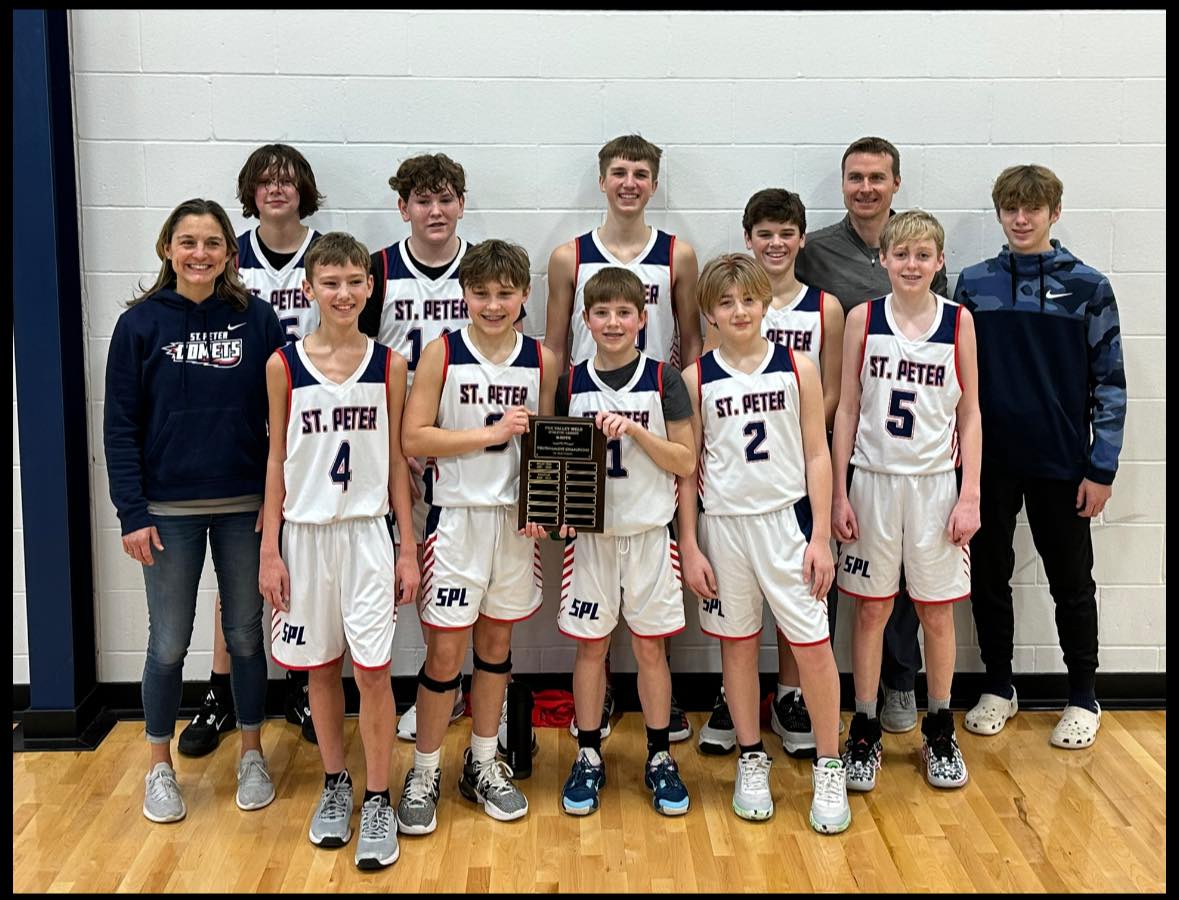
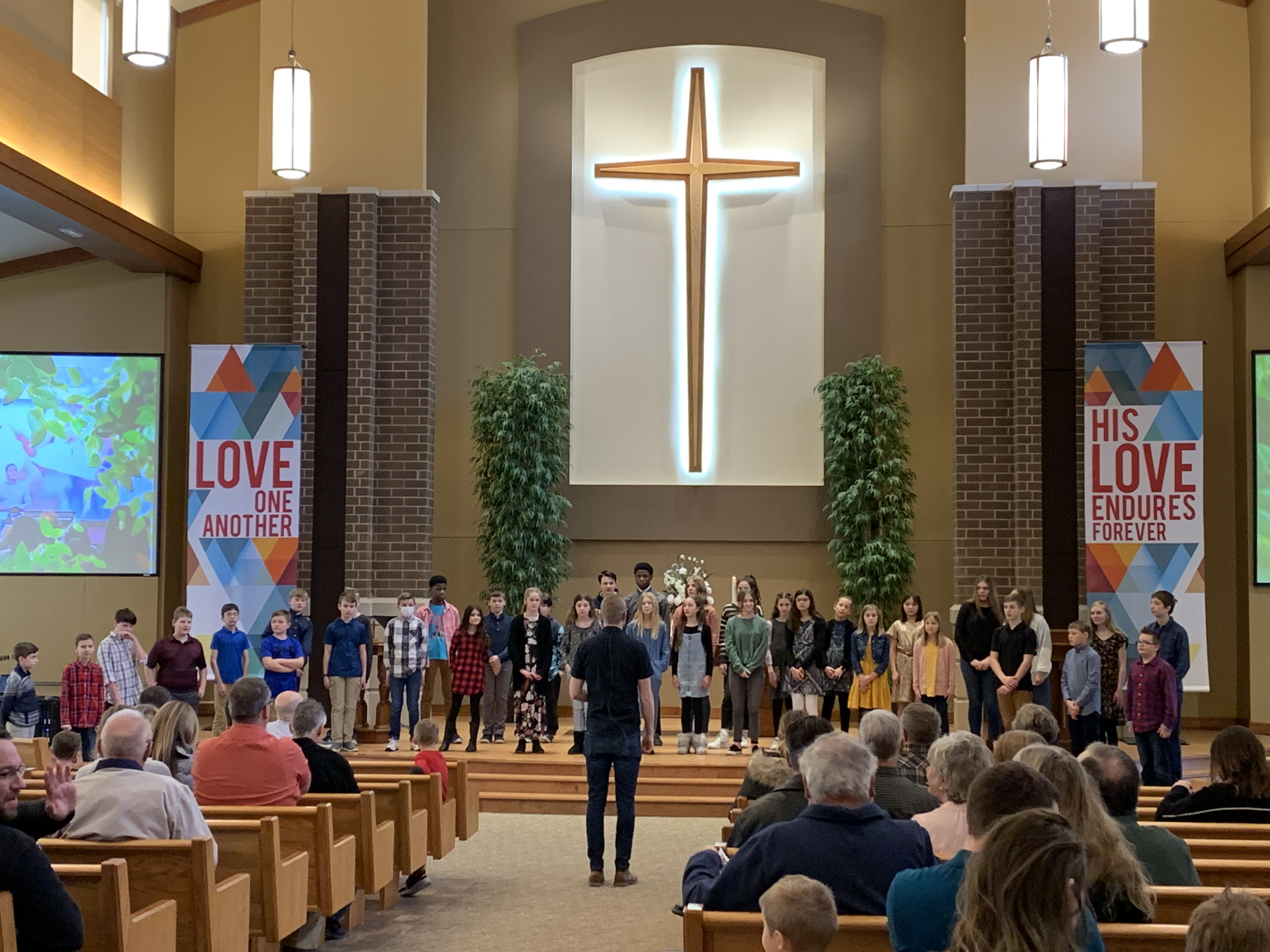
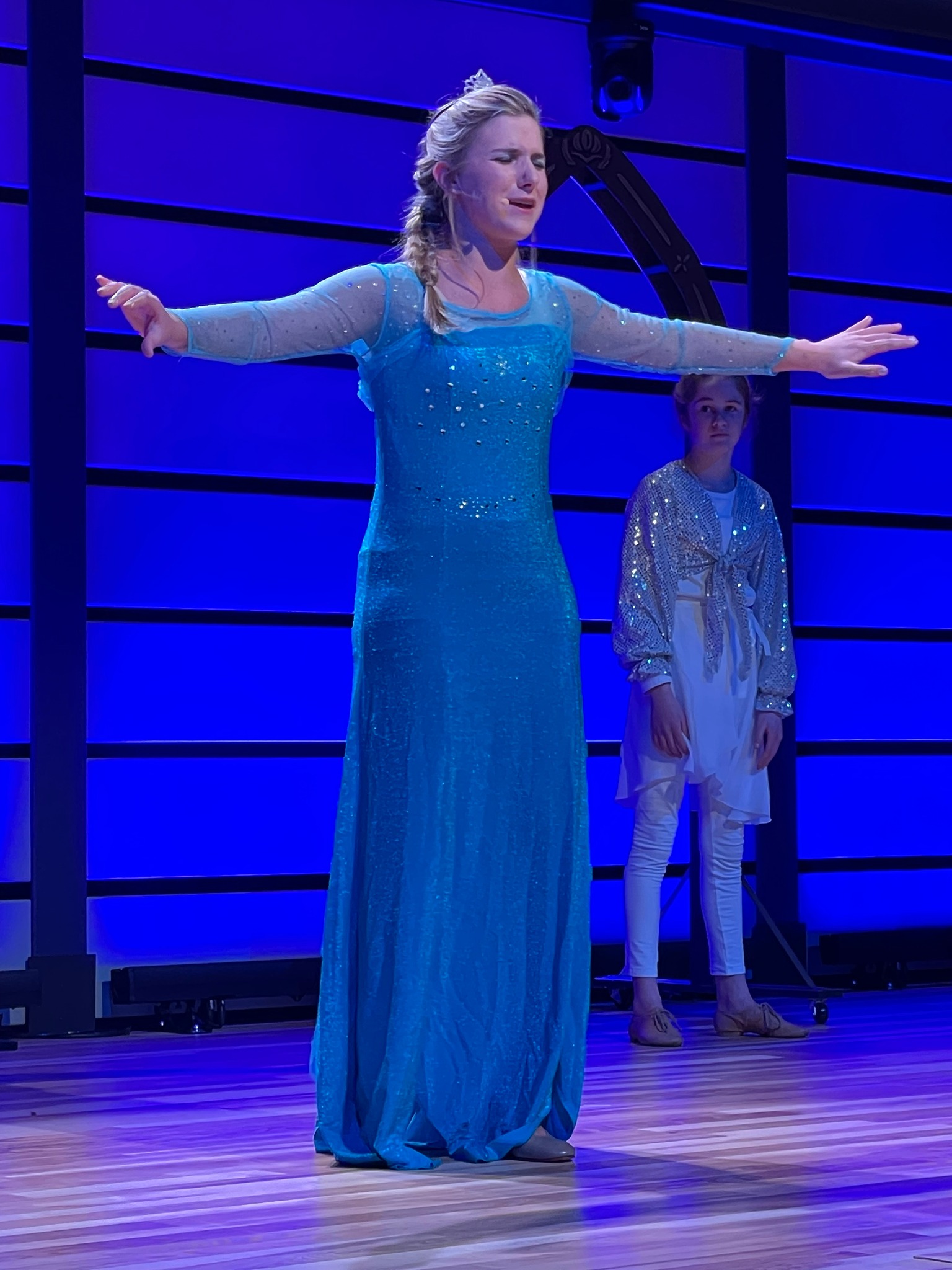
Counseling Services Available
Our school partners with Christian Family Solutions (CFS) to provide counseling services to children as needed. Our on-site counselor can provide a wide range of counseling services, including helping students with issues such as depression/anxiety, relationships, trauma, body image issues, and stress management. Christian school-based counseling is a wonderful partnership that helps teachers and parents ensure our students are mentally, emotionally, and spiritually strong. If you have questions about the services available, contact our school.
You can learn more about Christian Family Solutions and access helpful resources on the CFS website at www.ChristianFamilySolutions.org or by calling 1.800.438.1772.
We’d love to meet you!
The best way to see if St. Peter Lutheran is the right choice for you and your family is to see our campus in action. During your visit, you will meet our admissions team, tour our classrooms and facility, and have a chance to ask all your questions.

